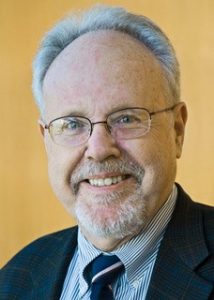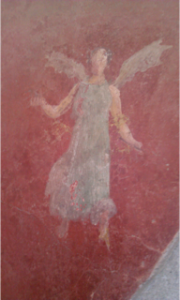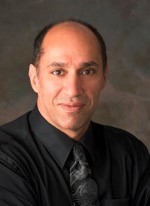From the Research Lab to the Clinic and the Other Way Around
About the Annual Symposium of the UBC School of Audiology and Speech Sciences
The 1st Symposium on Speech-language Pathology and Audiology of the School of Audiology and Speech Sciences will be held on April 1st 2017. This annual symposium will provide a forum for clinicians and researchers who are practising in British Columbia to engage in discussions that will advance clinical practise standards and add new knowledge about human communication and swallowing disorders.
Welcome message from the Director
It is my great pleasure to welcome you to the first annual symposium organized by the UBC School of Audiology and Speech Sciences. At the symposium, you will be able to learn about exciting new developments in your disciplines and about clinical applications of recent research findings. You will also be able to talk about research questions that have arisen from your own clinical practice with School colleagues who have been leading research efforts in their respective areas of interest.
Offering this Symposium gives us an opportunity to thank you for your contributions to our MSc program. My colleagues and I are excited to offer you a day of activities that will enable you to incorporate the latest research findings in your daily practice, thereby also advancing the standard of practice in our disciplines.
The Symposium will take place on April 1st, 2017 (9:00-16:30), on the School’s premises (3rd floor, Friedman Building) at the UBC Point Grey Campus in Vancouver.
Please register online using the registration button below
For online registration, payments can be made using major credit cards.
Rates for the symposium are as follows:
- Early Registration = $65.00
- Early Registration for Clinical Faculty Members = $55.00
- Normal Registration = $80.00
- Normal Registration for Clinical Faculty = $70.00
- Student Registration = $25.00 (Limited to 10 seats. Students wishing to register will not be able to use the online registration and instead should contact Clint Meyers )
Attendees must select one parallel session in the morning, and one in the afternoon at the time of registration. There are 50 seats available for each session. Therefore, registration for these sessions will be on a first-come-first-served basis.
NB. Because of the level at which the content of the sessions will be delivered, we only accept registration from clinically qualified audiologists and speech-language pathologists and from students in the MSc in Audiology and Speech Sciences.
note: Early registration runs until March 15th 2017
It will be possible to register on-site on the day of the symposium. For on-site registration, only payment in cash or cheque will be accepted.
If you need to cancel your registration, please send a written request by email to email address here before March 15, 2017. The refund will consist of the registration cost minus a $10 cancellation fee. No refund will be given for requests submitted after March 15, 2017.
Certificates of attendance will be provided upon request to symposium participants after the completion of the symposium. Requests must be made by March 24, 2017 for the certificates to be ready for collection at the end of the symposium on April 1st, 2017. Later requests will be accommodated but the certificate will have to be sent to participants after April 1st, 2017
The School strives to provide full access to the symposium sessions to all participants.
We will be able to provide an FM system on the day of the symposium. Unfortunately, captioning will not be available. However, visual displays of the verbal communications during the sessions can be provided if requested.
Requests for reasonable accommodations related to hearing, vision, or mobility should be made as soon as possible (possibly no later than March 15, 2017), so that these requests can be honored on the day of the symposium. We will endeavour to address on-site accommodation requests to the best of our abilities, as we have limited resources to accommodate late requests.
To request any accommodations related to accessibility during the symposium, please email us at: symposium@audiospeech.ubc.ca
The School will not share with any third parties any information provided by attendees for the purpose of registration or of communication about the symposium, including any correspondence information or email addresses.
If you have any questions about the Symposium, please feel free to email: symposium@audiospeech.ubc.ca
| 9:00 - 9:30 | Registration and coffee/tea |
| 9:30 - 10:00 | Welcome (Valter Ciocca, School Director) and Introduction to the morning and afternoon sessions (Drs. Soli, Bernhardt, Shahnaz, and Ms. Sinden) |
| 10:00 - 12:00 | Parallel sessions (attendees must select one of the sessions at the time of registration) |
|
Speech audiometry in a multicultural and multilingual world: Sigfrid D. Soli, Ph. D. Speech audiometry is often used in diagnostic assessment of hearing impairment in adult and pediatric patients, and to assess communication handicap caused by impairment. It is also used to document the efficacy of interventions intended to reduce this handicap. Objective knowledge of the efficacy of such interventions is essential to the practice of evidence-based audiology. A challenge in obtaining and using this knowledge is due to the many different speech materials and protocols available for speech audiometry. This challenge is further increased by the diverse range of languages and cultures in today’s patient population. This presentation will describe speech materials and protocols that have been developed to meet this challenge. These materials and protocols comprise the Hearing In Noise Test (HINT) which currently exists in over 20 languages, allowing measures of communication handicap to be similarly assessed in each language and directly compared across languages. The HINT is designed to be practical and efficient for use in a busy clinic setting. The rationale for the HINT will be described, and the HINT protocol will be demonstrated. Examples of its use with adult and pediatric patients will be given together with a summary of its history and use throughout the world.
Research to Practice and Back Again: Barbara May Bernhardt, PhD, RSLP Speech-language pathology and audiology are exciting enough when the work takes place in one's own cultural and linguistic milieu. However, we are often working outside that comfort zone. We are challenged to find ways to communicate with and provide service to people who do not speak our language or dialect, or if they do, have a different cultural background. Over my career, I have had the privilege of collaborating in research with people in 18 countries, and including Canada's First Nations communities. The primary focus has been children's phonological development, both to document patterns across language and evaluate phonological analysis and intervention strategies. Additional foci have included early prediction of language delay and First Nations English dialects. The first part of the session will: (1) report key findings from my research that can support speech-language pathology practice; and (2) describe strategies and tools to enhance success in intercultural and crosslinguistic endeavours, whether for research or clinical practice, or for children or adults. In the second part of the session, participants will gain practice with tools and strategies developed for the crosslinguistic study and have an opportunity to share any successful strategies they currently use in cross-cultural practice. Costumes and props are optional considering the day!
Dr. Bernhardt is a Full Professor in the School of Audiology and Speech Sciences at the University of British Columbia, with a plan to graduate AT LAST June 30, 2017. She is currently also a registered speech-language pathologist (since 1972). Her areas of specialization in research, teaching and clinical practice are language development, assessment and intervention with a specific focus on phonology and phonetics. Her major research area is the application of nonlinear phonology to phonological and assessment and intervention, with an ongoing international crosslinguistic project (14 languages) and a website phonodevelopment.sites.olt.ubc.ca. Other research includes evaluation of the use of ultrasound in speech intervention, early prediction of language impairment and issues relating to service delivery to people of Aboriginal heritage in Canada. Her passions are her family, singing, dancing, improv, nordic skiing, cycling and of course, fun-ology. |
|
| 12:00 - 13:15 | Lunch break (self-catered) |
| 13:15 - 15:15 | Parallel sessions (attendees must select one of the sessions at the time of registration) |
|
Counselling for Communication Disorders – Focusing on the Clinician The role of the Speech Language Pathologist in counselling for communication disorders is a subjective practice among clinicians. One’s professional boundaries and identity need to be explored in relation to the “personal self”- a task that requires deep insight and introspection. In this workshop, participants will be encouraged to apply reflective practice strategies to significant clinical events. These strategies aim to promote awareness of the clinician’s perspective and responses, with the potential to increase confidence and effectiveness within the counselling dyad. This workshop will also include a discussion on relationship-centred care, compassion fatigue and the role of reasonable hope in counselling for clinicians. About Marcia Choi Marcia Choi is a Speech-Language Pathologist and an Instructor-Academic Coordinator of Clinical Education in the UBC School of Audiology and Speech Sciences. In addition to teaching professional issues and skills for the School, Marcia is a member of the Clinical Teaching and Coordination Team which supports students and clinical faculty in the endeavour of preparing new clinicians. Marcia’s clinical background includes working with adults after stroke, traumatic brain injury and with degenerative neurological conditions. Her professional background also includes teaching leadership and team skills in health care and human service. Since joining the School in August 2015, Marcia’s focus on building placement capacity in British Columbia has her contributing to the clinical faculty development program, completing outreach to BC communities and most recently, successfully partnering with SLPs at the University Hospital of Northern B.C to start a new interprofessional SLP-led student clinic experience for People with Aphasia in Prince George, based on Supported Conversation for Adults with Aphasia (SCA™). About Tami Howe Tami Howe, PhD, SLP (C), joined the faculty in the School of Audiology and Speech Sciences at the University of British Columbia at the end of 2015, after working for a number of years at the University of Canterbury in Christchurch, New Zealand. Prior to obtaining her doctorate and postdoctorate at the University of Queensland in Brisbane, Australia, Dr. Howe worked as a speech-language pathologist with adults with neurogenic communication disorders in acute care, inpatient rehabilitation, outpatient, dayward, and community settings in Canada and New Zealand. Dr. Howe’s research focuses on how adults with aphasia and their family members live with their communication disorder, with the ultimate goal of finding ways to improve their quality of life. |
|
| 15:15 - 15:30 | Coffee/tea break |
| 15:30 - 16:30 | Panel sessions: Meet individual researchers from the School’s faculty |
School of Audiology and Speech Sciences
We are located on the third floor behind the Shoppers Drug Mart on 2177 Wesbrook Mall, in the Friedman Building. The main entrance is located on the north side of the building near the Dentistry Building. This entrance is accessible with a power door and a symposium volunteer will prop open the door during the event.
Parking:
Parking is available at the Health Sciences Parkade (2250 Health Sciences Mall), the Hospital Lot (located on the west side of Wesbrook Mall in the 2200 Block in front of the UBC Hospital) or behind the Shoppers Drug Mart (5940 University Boulevard).
See the UBC Parking website for more information: https://parking.ubc.ca/
Accommodation:
If you are interested in accommodation options, please visit UBC Conferences & Accommodations at http://suitesatubc.com/
(Toll-Free Reservations: 1 888 822 1030)
Note that on-campus accommodations fill quickly, and early booking is recommended.
 About Sigfrid D. Soli
About Sigfrid D. Soli About (Barbara) May Bernhardt
About (Barbara) May Bernhardt  About Navid Shahnaz
About Navid Shahnaz